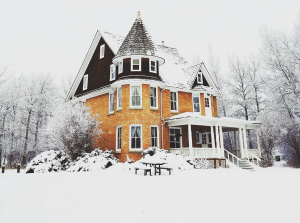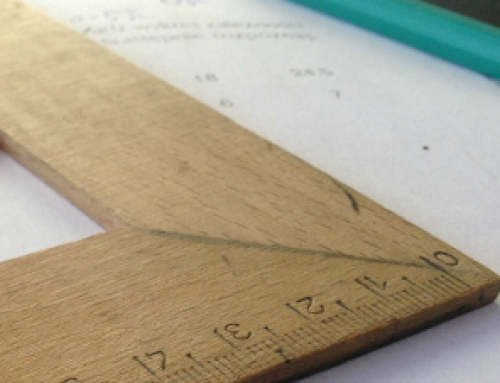 When you’re buying a home, there are certain inspections that are a required part of the mortgage process. There are also some which are voluntary. When you’re working with a tight budget, as many homebuyers are, going the cheap route may seem smart, but it’s best to know what types of home inspections are available and why they may be a very good idea for you. Our home inspection list and tips are meant to help you cross your t’s and dot your i’s prior to buying your home.
When you’re buying a home, there are certain inspections that are a required part of the mortgage process. There are also some which are voluntary. When you’re working with a tight budget, as many homebuyers are, going the cheap route may seem smart, but it’s best to know what types of home inspections are available and why they may be a very good idea for you. Our home inspection list and tips are meant to help you cross your t’s and dot your i’s prior to buying your home.
Buying a Fixer-Upper
The price is right and it seems like with just a bit of elbow grease and a few weekend projects, your dream home could be a reality. But when it comes to buying a true “fixer-upper” it’s best to realize that nothing will be as easy as it seems. Even with new construction, it always takes longer and costs more than you expect. If you have a budget for improvements, and have a full inspection of the property, you’ll go in with an idea of the adventure that lies ahead. Even with a home inspection, stories abound of young homeowners finding out 8 months after the closing that they have termites, or significant plumbing problems, or when pulling up linoleum in the kitchen, asbestos tile is discovered underneath. Making certain to find a reputable inspector or state licensed engineer, (not just someone referred by your realtor, or appraiser), to get the inspections you need to make you comfortable with your purchase, is of utmost importance.
Common Types of Home Inspections
Wood-Destroying Pests – Termites, Powder-Post beetles, Carpenter ants. This type of inspection will tell you what you’ve got. While the problem can be more prevalent in warmer climates, wood eating pests are found everywhere. These inspections also let you know if you’ve got wood rot.
While having these pests doesn’t mean you shouldn’t buy the house, you will want to give consideration to the cost of treatment/repair. You may want treatment completed before the closing, or ask for an adjustment in price, or you may decide the problem is too big and back out of the purchase. If an appraiser notices pests, he/she will comment in the appraisal and the lender will set stipulations. Having your own pest inspection completed will provide far greater detail on the issue at hand.
Chimney Inspections – This is usually required for any home with a wood-burning fireplace/woodstove. The inspection provides key information on any repairs needing to be done. You can negotiate to have them completed prior to closing, or ask for a credit at closing to cover any required work. Chimney inspections checking things like flue, chimney pointing or structure, and issues with the chimney lining
Electrical, HVAC – These items are usually covered by a standard home inspection, but not to the level of detail that would uncover internal workings of a furnace, circuit breakers, etc. If you’re buying a fixer-upper, having an actual specialist out to inspect your systems could save you money and time. Remember though, buying a fixer-upper implies there will be work to do. Credits or price renegotiation may be available if something unexpected is brought to light, but minor repairs or renovations are no doubt one of the reasons the price is so great.
Sewer and Septic Inspection – If you are purchasing a home with a private sewer or septic system, there is a certain level of maintenance required, and if the sellers haven’t completed that work, there may be additional repairs or even full replacement required when you become the homeowner. That’s why these types of inspections are usually required by the lender. A problem here may be a reason not to go through with a purchase.
Well/Water Inspection – If the property you’re looking at has private well water, most lenders will require an inspection. If a property has private and public, the lender may not require it, but you may still want some level of comfort with an inspection. The inspection will also give you information on the type of well, the integrity of the well, and the depth of the water table, all important aspects when you come to rely on that well for your family’s water supply.
Other types of home inspections that can be done based on the home, the area, and your needs include square footage, zoning, asbestos, mold, pool/spa and even the health of the trees on your property. The National Association of Home Inspectors is a great resource.
Inspections are Important for New Construction, Too:
Home Inspector or State Licensed Engineer?
Even when purchasing new construction, a home inspection is a good idea. Contractors have been known to take shortcuts, Radon gas is found in old and new properties, and there are many things a licensed engineer can tell you about your new home. If you hire a state licensed engineer to perform your home inspection, you can expect to pay a bit more for the inspection, but will receive an in-depth report on the home’s construction, systems, and foundation health. You may also receive information on energy savings, steps to take for maintaining your home, and what your expectations should be on the remaining life of various systems (roofs, mechanicals, etc.). While that level of detail isn’t what everyone wants, it is an option, and for many the only way to go.
When you purchase a home you’re buying HVAC, plumbing, cabinets, construction, roofing, flooring, windows, and all the bits and pieces in between. It’s probably going to be the largest purchase you ever make. Home inspections provide information, but also a wealth of knowledge you will be able to refer to as you move in and build your life in your new home.
Resources
http://www.houselogic.com/home-advice/pest-control/detect-termites-other-wood-destroying-insects/
http://homebuying.about.com/od/homeshopping/f/31309_TypesInsp.htm













Follow Us